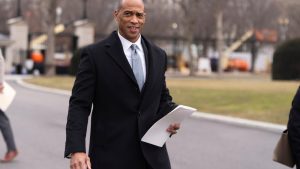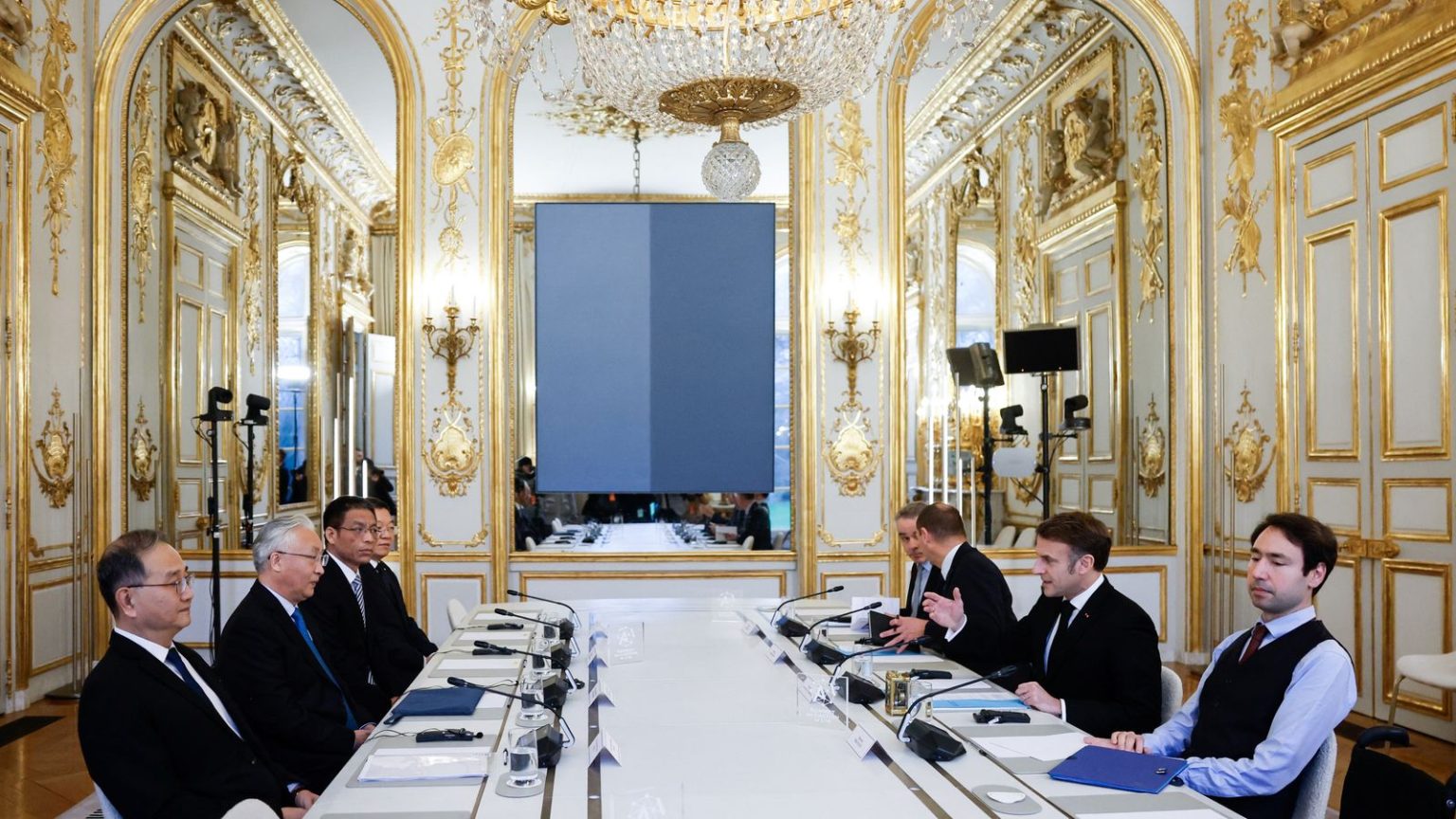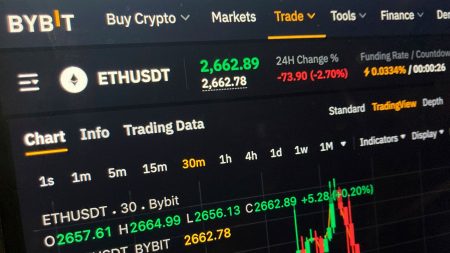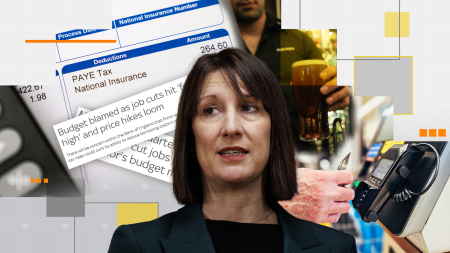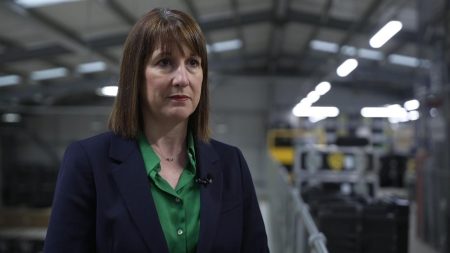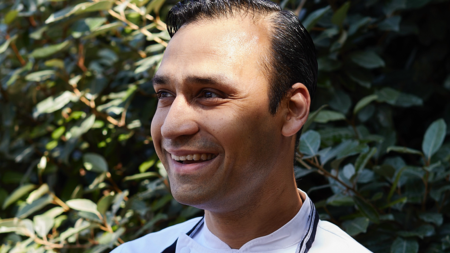The AI Action Summit: A New Era of Power and Collaboration
The AI Action Summit, held in the grand city of Paris, marks a pivotal moment in the history of artificial intelligence. It is not just a gathering of political leaders from the world’s major economies, but also a platform where the true power brokers of the digital age—big tech companies—take center stage. These corporations wield immense influence, owning the most advanced AI models, the cutting-edge hardware, and the expertise to shape the future of technology. The summit serves as a reminder that in the age of AI, the balance of power has shifted. While governments are eager to capitalize on the benefits of AI, they are also grappling with the challenges of ensuring that this transformative technology does not spiral out of control. The focus of the summit, therefore, is twofold: harnessing the potential of AI for societal good while mitigating its risks.
In late 2023, the UK government hosted the first international AI summit at Bletchley Park, a historic site that once served as the hub for British codebreaking during World War II. The summit’s stated aim was to address AI safety and explore ways to protect citizens from the potential threats posed by superintelligent AI. However, beneath the surface, political leaders were intensely focused on how to leverage AI to gain a strategic advantage. The rapid advancement of AI has created both opportunities and challenges, and governments are scrambling to keep pace. The AI Action Summit in Paris is the latest iteration of these efforts, bringing together global leaders to navigate the complexities of this new technological landscape.
Political Leaders and the Race for AI Supremacy
The AI Action Summit has attracted some of the most influential figures in global politics, each with their own agendas and priorities. Among them is former U.S. President Donald Trump, who has vowed to make the United States the world’s AI superpower. Trump’s rhetoric underscores the growing competition among nations to dominate the AI landscape. However, his ambitions were quickly put to the test when a Chinese company, DeepSeek, demonstrated its ability to rival American tech giants despite stringent restrictions on access to advanced AI hardware. This development highlights China’s growing prowess in the field and its determination to be a major player in the AI race.
China’s increased involvement in the summit is evident in the presence of Vice Premier Zhang Guoqing, a close ally of President Xi Jinping. Zhang’s attendance signals China’s intent to assert its influence on the global stage and ensure that its interests are represented in international discussions on AI. The summit also marks a significant moment for U.S. Vice President JD Vance, who is making his first overseas trip to attend the event. Vance’s participation underscores the importance of AI as a key area of focus for the Biden administration. The convergence of these political leaders in Paris illustrates the high stakes involved in shaping the future of AI.
The Rise of China as a Key Player in AI
China’s emergence as a major force in AI is one of the most significant developments in recent years. Despite facing strict controls on AI hardware, Chinese companies like DeepSeek have managed to make strides in the field, demonstrating their ability to rival American tech giants. This achievement is a testament to China’s technological prowess and its commitment to becoming a global leader in AI. The presence of Vice Premier Zhang Guoqing at the AI Action Summit is a clear indication of China’s intent to play a more active role in international discussions on AI governance and regulation.
The rise of China in the AI landscape presents both opportunities and challenges for the rest of the world. On one hand, China’s advancements have the potential to drive innovation and push the boundaries of what is possible with AI. On the other hand, it also intensifies the competition for AI supremacy, raising concerns about the potential for a geopolitical race that could have far-reaching consequences. As nations like the U.S. and China jockey for position, the summit serves as a reminder of the need for international cooperation to ensure that AI development is aligned with global interests and values.
The Role of France in Steering the AI Agenda
French President Emmanuel Macron has emerged as a key figure in shaping the agenda of the AI Action Summit. Macron is keen to shift the focus of the discussions away from the risks associated with superintelligent AI and toward the practical applications of AI in addressing societal challenges. He emphasizes the potential of AI to drive progress in areas such as healthcare, education, and public services. By steering the conversation in this direction, Macron hopes to ensure that the summit yields tangible outcomes that can benefit societies around the world.
However, Macron’s approach has not been without its challenges. A leaked draft of the summit’s political declaration, which was intended to outline a shared commitment to ethical, democratic, and environmental principles in AI development, made little mention of safety concerns. This omission has raised eyebrows among experts and advocates who argue that the risks associated with AI cannot be ignored. The European Union, for instance, has adopted a stricter regulatory stance on AI, reflecting the broader concerns within the international community. The divergence between Macron’s vision and the EU’s approach highlights the complexities of achieving consensus on AI governance.
The Tech Industry’s Perspective and the Debate on Regulation
The big tech companies attending the AI Action Summit have their own agenda, which revolves around ensuring that AI innovation remains unhindered by excessive regulation. They argue that a light-touch regulatory framework is essential to fostering creativity and driving progress in the field. This perspective is closely aligned with the stance of former President Donald Trump, who has championed deregulation as a means of accelerating American leadership in AI. The tech industry’s lobbying efforts have been instrumental in shaping the debate on AI regulation, and their influence is likely to be felt at the summit.
Despite their emphasis on innovation, the tech companies are also aware of the need to address concerns about the ethical implications of AI. They are willing to engage in discussions about how to ensure that AI tools are developed and deployed responsibly. However, their primary focus remains on maintaining the conditions that allow for rapid technological advancement. This stance has put them at odds with critics who warn of the dangers of an AI oligopoly and the potential for unchecked technological growth to exacerbate existing inequalities and threats.
The Risks of a Geopolitical AI Race and the Future of AI Governance
As the AI Action Summit progresses, the underlying tensions between global powers have become increasingly apparent. The race for AI supremacy is no longer just a metaphor; it has become a defining feature of international relations in the digital age. Leaders like Donald Trump and Xi Jinping are likely to pursue aggressive strategies to ensure their nations’ dominance in the AI arena. This geopolitical competition raises significant risks, not least of which is the potential for an unregulated arms race in advanced AI technologies.
The stakes are high, and the consequences of getting it wrong could be catastrophic. Experts warn of the dangers of a world where a handful of corporations and nations wield unchecked power over AI, with little regard for the broader implications for humanity. The AI Action Summit offers a unique opportunity for global leaders to come together and establish a framework for responsible AI development. However, achieving this goal will require more than just rhetoric; it will demand a commitment to collaboration, transparency, and accountability. The world is watching as the summit unfolds, hoping that the outcomes will reflect a shared vision for a future where AI serves as a force for good.

